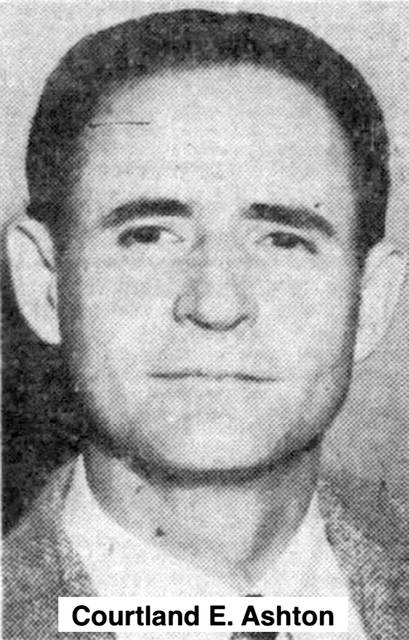Courtland E. Ashton (1903-1980), an employee of Lihue Plantation from 1945 to 1948, was the commanding officer of a company of Filipino guerrillas on Negros Island for more than two years during World War II.
Ashton had arrived in the Philippines in March 1941 to assume the duties of boiling house superintendent at the North Negros Sugar Co., having previously worked as a chemist at Waialua Agricultural Co., Oahu, for several years.
When Japan invaded the Philippines in December 1941, Ashton and his wife, Ellen, fled to a mountain hideout to avoid being captured by the Japanese and interned in a concentration camp, where over 200 Caucasians became prisoners.
While in the mountains, Ashton learned that Filipino guerrillas were sabotaging sugar plantations, railroads, lumber companies, communications and supply lines, etc., so he volunteered to do his part and was given command of a company of 110 guerrillas.
His company, with its headquarters in central Negros, was a supply outfit, not a combat company, and was charged with acquiring and transporting supplies to other guerrilla units.
If the Japanese caught a guerrilla, they would immediately march him out to the airport and publicly behead him — but every guerrilla executed had at least 100 friends or relatives who then committed themselves to hunting down Japanese and killing them in revenge.
The Japanese invaders also learned that torturing or abusing the people of Negros turned even more Filipinos against them.
There were many close calls for the Ashtons; on three occasions, Japanese patrols were heard prowling by Ashton’s headquarters, yet they failed to detect it.
In June 1944, the Ashtons, although suffering from malnutrition and dysentery, hiked for miles across malarial country to rendezvous with a U. S. submarine off the coast, which transported them to freedom in Australia.
Upon his return to Hawaii in 1945, Ashton joined Lihue Plantation as chief sugar boiler, and in 1948, he returned to the Philippines to accept the position of boiling house superintendent of Victorias Milling Co.
He retired from the Big Island’s Hawaiian Agricultural Co. in 1967.



Those Filipino guerrillas were tough and sometimes crazy pinays. One who claimed he belonged to this group was given guard duty of Japanese prisoners and issued a brand new American 30.06 rifle. Curious of the power that he never fired before, lined up ten prisoners front to back and pulled the trigger. He claims the bullet went through six and lounged in the seventh. His commander wasn’t too happy, but that is war when the other side treats you the same way.